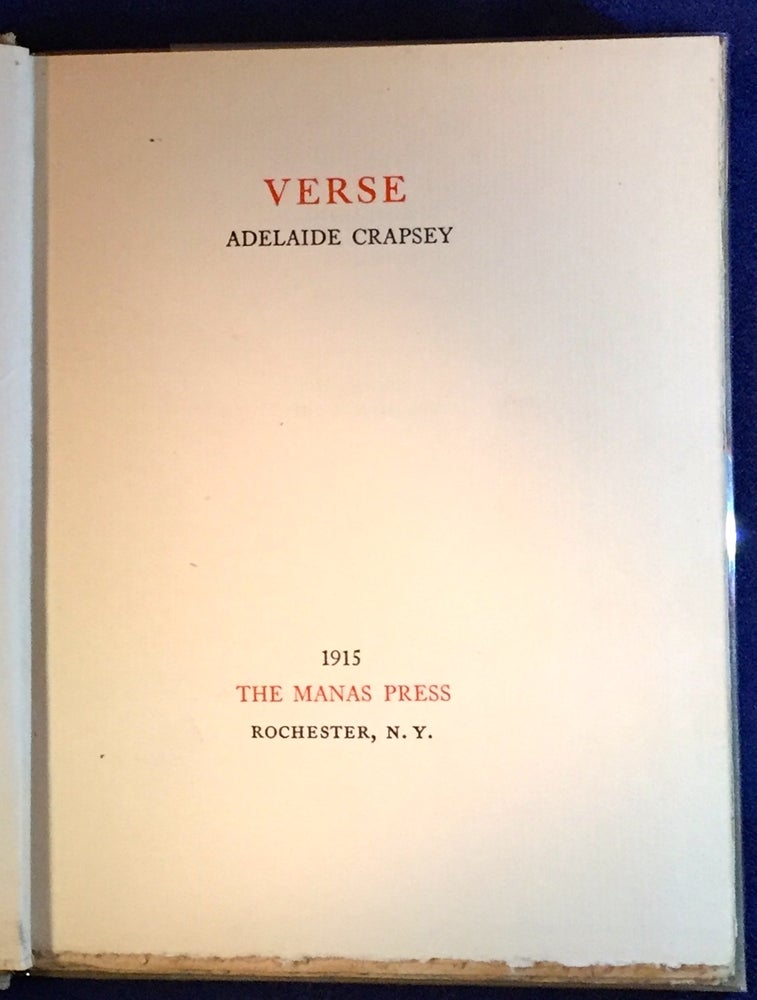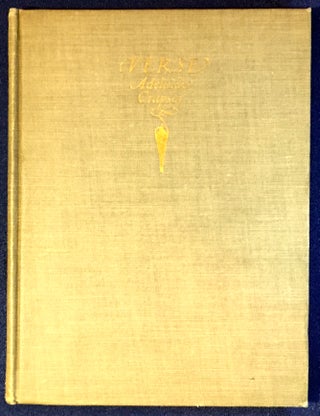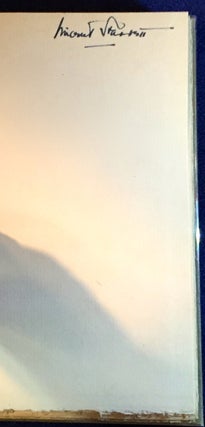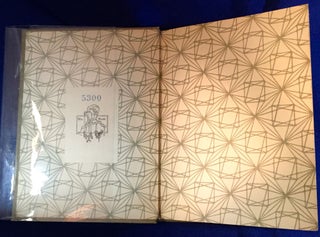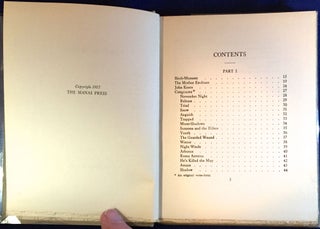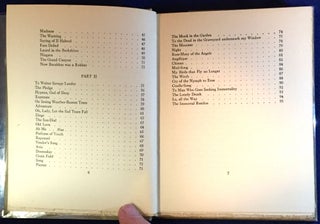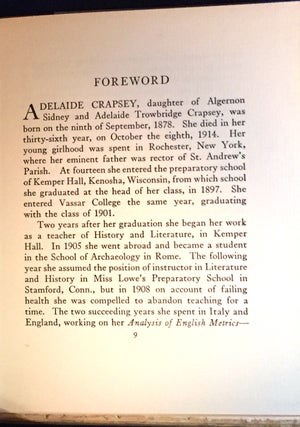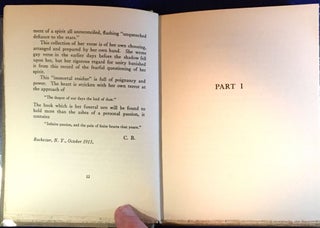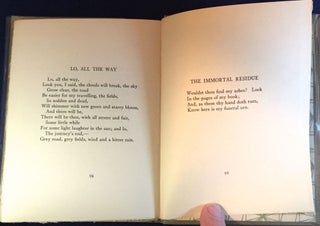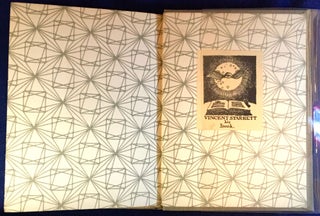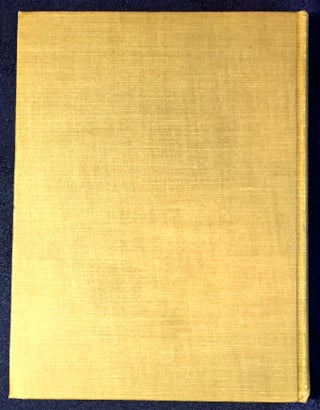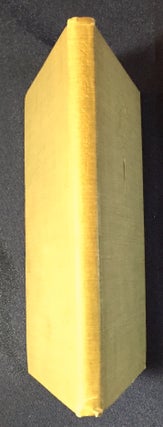VERSE
Rochester, N. Y. The Manas Press, 1915. First Edition. Cloth. ASSOCIATION COPY once owned by author, poet, & bibliophile VINCENT STARRETT with his Signature and Bookplates, 16mo (6 1/2" x 5"), brown cloth with gold lettering on spine and front cover, protected with an archival quality acetate sleeve, 95 pages. Fine / None. Item #2880
Adelaide Crapsey (September 9, 1878 – October 8, 1914) was an American poet. Born in Brooklyn, New York, she was the daughter of an Episcopal minister, and was raised in Rochester, New York, by her parents in a liberal environment that favored the development of women. At Vassar, she was class poet for three years, a member of Phi Beta Kappa, and valedictorian for the class of 1897.
At Vassar, Crapsey had roomed with "Jean Webster" who remained "her best friend and literary comrade" for the rest of her illness plagued, too short life. "Jean Webster" was the pseudonym for Alice Webster, [1876 – 1916], an American novelist and playwrite who wrote many books; perhaps most notably: Daddy-Long-Legs and Dear Enemy.
Meanwhile, Adelaide suffered from recurrent depressions and physical weaknesses caused by undiagnosed tuberculosis following the deaths of her two sisters and brother from various diseases; she also was profoundly affected by her father's predicament after losing his position as Rector of St. Andrews after he was found guilty of "heresy,"
After intermittent minor teaching positions at Miss Low's School in Samford, Connecticut, when Adelaide had become increasingly ill and desperate for a living wage and health, Smith College offered her a job teaching Poetics. She accepted but this rescue came too late, for later in 1911, she was diagnosed with tuberculin meningitis.
Poignantly, at that time, her poetic gifts further bloomed when she wrote her first cinquains--a unique five-line poetic form which grew out of her profound study of metrics.
Crapsey's hope for her immortality lay in her writings. The envoi of her Verse, entitled "The Immortal Residue," reads:
Wouldst thou find my ashes? Look
In the pages of my book;
And, as these thy hand doth turn,
Know here is my funeral urn.
Claude Bragdon was a friend of the Crapsey family in Rochester. Besides being a noted architect, he had a press. Using his Manus Press, he published a book of Crapsey's poems entitled Verse (Manas Press, 1915). The book had a Foreword by Bragdon and a Preface by Jean Webster who had been Crapsey's roommate at Vassar and her lifelong friend.
In her Introduction to Verse, Webster wrote that Adelaide was "by nature as vivid and joyous and alive a spirit as ever loved the beauty of life, like Keats and Stevenson, worked doggedly for many years against the numbing weight of a creeping pitiless disease." Carl Sandburg also honored Crapsey and her cinquains in his poem bearing her name "Adelaide Crapsey."--condensing Wikipedia; see also Karen Alkalay-Gut, Alone in the Dawn: The Life of Adelaide Crapsey (University of Georgia Press, 2008.)
EXCEPTIONAL COPY with an Attractive Association to Charles VINCENT STARRETT (1886 – 1974), an American author of The Private Life of Sherlock Holmes [1933], as well as detective novels and horror/fantasy stories such as The Quick and the Dead for Arkham House in [1965]); a newspaperman who wrote the column "Books Alive" for the Chicago Tribune; a poet of considerable ability (Autolycus in Limbo [1943]); and very well known bibliophile. His signature is on a front endpaper and his bookplates are on the rear and front pastedowns.
Price: $225.00

